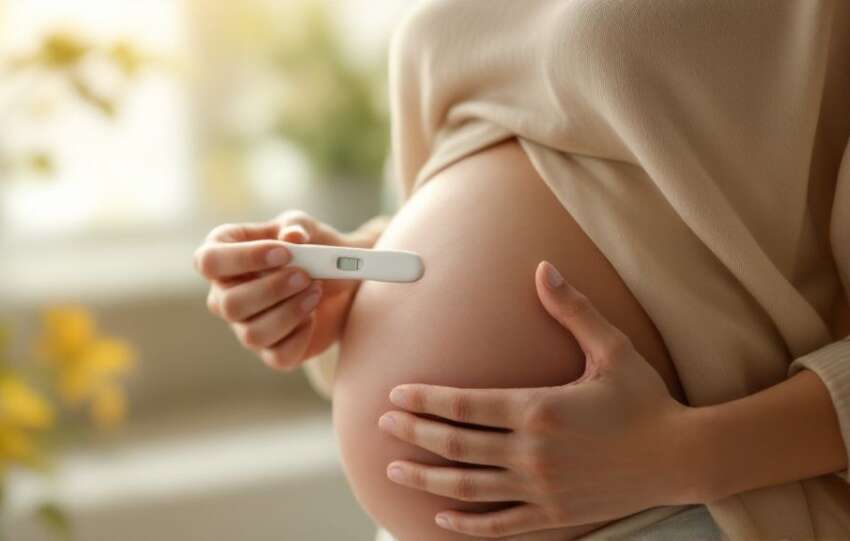Normally, the menstrual cycle lasts 28 days, however, a normal cycle can last from 21 to 38 days. A menstrual cycle, however, may be shorter or longer than typical on occasion. Consistently irregular periods, however, may be a sign of some health conditions, such as PCOS or thyroid difficulties, even though an irregular period now and then is often not a cause for concern. If you are constantly experiencing irregular periods, it is better to take advice from your healthcare provider.
When the interval between the first day of your period and the first day of your subsequent period fluctuates from cycle to cycle, this is referred to as having irregular periods. It can take place a few days sooner or later than anticipated. This inconsistency could frustrate you, especially if you’re trying to get pregnant.
Typically, the menstrual cycle follows a relatively predictable schedule. Each month, the ovaries release an egg around the same time, a process known as ovulation. Hormones tell your body to shed the tissues lining the uterus if the egg is not fertilized, and you get your period as a result. It takes around five days for this cycle to complete before the treatment is repeated.
However, this cycle is not always as predictable as it may seem. Although it can lasts from 21 to 38 days, the menstrual cycle lasts an average of 28 days. Some women experience more erratic menstrual cycles that vary in duration from month to month. When it comes to knowing when to buy fresh tampons or pads and when you are ovulating, having irregular menstruation can make things more difficult. It can also make it more harder to conceive.
When to test for pregnancy if irregular periods

Most pregnancy tests assert that they are most reliable after a missing period, it might be difficult for women who have irregular cycles to plan when to take the test. If there are more than 35 days between periods, the period is deemed irregular. In addition, if the length of the menstrual cycle fluctuates from month to month, for instance, if it is 22 days one month and 33 days the following, the period is regarded as irregular.
If your cycles are irregular and you think you could be pregnant, try counting back 36 days from the beginning of your most recent cycle or four weeks from the last time you had intercourse. Your hCG levels ought to be high enough at this stage to show if you are pregnant.
Wait a few more days before using a different pregnancy test, though, if your first test reveals that you are not pregnant but you still believe you could be. Alternatively, you may also consider calling your doctor for a blood test, which can detect pregnancy hormones earlier than urine tests.
Signs of pregnancy when you have regular periods

Pregnancy is a beautiful experience for many women, and it comes with various signs and symptoms. Even with a regular menstrual cycle, it is still possible to experience early signs of pregnancy. These signs and symptoms may include:
Increased urination:
You might find yourself urinating more often than usual. The amount of blood in your body increases during pregnancy, causing your kidneys to process extra fluid that ends up in your bladder.
Tender:
Hormonal changes during early pregnancy can make your breasts sensitive and sore. This discomfort usually decreases after a few weeks as your body adjusts to hormonal changes.
Cramping:
Some women experience mild uterine cramping early in pregnancy.
Nausea:
Morning sickness, which can occur at any time of the day or night, often starts one to two months after you become pregnant. While the cause of nausea during pregnancy isn’t clear, pregnancy hormones likely play a role.
Fatigue:
Feeling tired and sleepy is also a common early symptom of pregnancy. While the exact cause of fatigue during early pregnancy is unknown, a rapid rise in the levels of the hormone progesterone during early pregnancy might contribute to fatigue.
Bloating:
Hormonal changes during early pregnancy can cause bloating, similar to how you might feel at the start of a menstrual period.
Moodiness:
Hormonal changes in early pregnancy can make you unusually emotional and weepy. Mood swings are also common.
Light spotting:
Light spotting might be one of the first signs of pregnancy. Known as implantation bleeding, it happens when the fertilized egg attaches to the lining of the uterus, which usually occurs 10 to 14 days after conception. However, not all women experience this
Constipation:
Hormonal changes cause your digestive system to slow down, which can lead to constipation.
Nasal congestion:
Increasing hormone levels and blood production can cause the mucous membranes in your nose to swell, dry out, and bleed easily. This might cause you to have a stuffy or runny nose.
Food aversions:
During pregnancy, you might become more sensitive to certain odors, and your sense of taste might change. These food preferences can be attributed to hormonal changes.
Signs of pregnancy when you have irregular periods How to confirm pregnancy for irregular periods
It’s possible to identify if you’re pregnant even if you have irregular periods. Irregular periods can make it more challenging to predict when you should take a pregnancy test, but other signs of pregnancy can be used as indicators. These signs may include implantation bleeding, which occurs when the fertilized egg implants itself into the lining of the uterus, resulting in light spotting. Other early signs of pregnancy include nausea, swollen or tender breasts, fatigue, frequent urination, mood swings, headaches, backaches, and changes in food cravings or aversions. These symptoms can occur within the first few weeks after conception, and some women may experience only a few of them or none at all. However, if you have any concerns about whether or not you might be pregnant, it’s essential to take a pregnancy test or speak with your doctor.
Signs of pregnancy when you have irregular periods
If you have irregular periods, it can be difficult to know if you’re pregnant just by missing a period. However, there are other signs of pregnancy to watch for.
Implantation bleeding is one of them. It happens when a fertilized egg attaches to the uterus, and some women experience light bleeding or spotting during this time. It can be confused with a light period, but there are ways to distinguish it. Unlike regular periods, implantation bleeding is typically very light and only lasts for one to three days. The color of the blood is also different, pink or brown instead of red, and it does not include clots of coagulated blood and tissue.
Nausea is another common symptom of early pregnancy, and it can start as early as two weeks after conception. It’s often accompanied by vomiting and can be more frequent in the morning due to low blood sugar levels reacting with hormones. Swollen or tender breasts can also be a sign of pregnancy. As the body adjusts to accommodate the growing fetus, hormone levels change and can cause breasts to become sore and swollen.
Fatigue is another common symptom of early pregnancy. As the body changes to support the growing fetus, it requires more energy, which can make you feel tired. Rising levels of progesterone, a hormone that regulates the menstrual cycle, can also contribute to fatigue.
Other symptoms of pregnancy include frequent urination, mood swings, headaches, backaches, and changes in food preferences, such as cravings or aversions.
Irregular period pregnancy test calculator
Tracking your menstrual cycle can help you understand if you have irregular periods and identify any changes that may need medical attention. It’s also important to pay attention to any other symptoms you may be experiencing, such as pain or heavy bleeding, as they may indicate an underlying condition that requires treatment. Consulting with a gynecologist or healthcare provider can provide a more accurate diagnosis and ensure you receive appropriate care.
I got pregnant with irregular periods
While irregular periods can make it more difficult to predict ovulation and conceive, it is still possible for women to get pregnant. The success rate may vary depending on the individual and the severity of the irregularity in their menstrual cycle. It is recommended for women with irregular periods who are trying to conceive to track their ovulation using ovulation predictor kits or fertility tracking apps and to consult with their healthcare provider for additional guidance and support.
How do you know when you ovulating if you have irregular periods?
Ovulation predictor kits (OPKs) and fertility monitors are tools that can help women track ovulation with irregular periods. This is because both OPKs and fertility monitors measure the levels of luteinizing hormone (LH) in a woman’s urine. LH is a hormone that surges 24-48 hours before ovulation, and measuring this hormone can help women pinpoint their most fertile days.
OPKs work by detecting the surge of LH in a woman’s urine. A positive result indicates that ovulation is likely to occur within the next 12-36 hours, which is the ideal time for intercourse. Fertility monitors, on the other hand, are more advanced devices that can track several fertility indicators, including LH, estrogen, and basal body temperature. They can provide more accurate information about a woman’s fertile window and can help women with irregular periods identify patterns in their cycles.
While irregular periods can make it more challenging to track ovulation, using tools like OPKs and fertility monitors can help women identify their most fertile days and increase their chances of getting pregnant.
